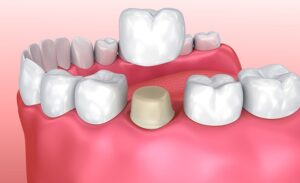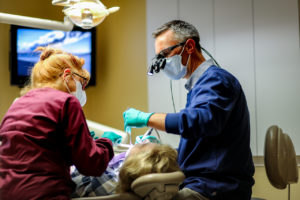Gravity is precise in nature, governed by laws and formulas; it does not respond to individual circumstances or objectives. It’s easy because it always works. Clinical dentistry, on the other hand, is science for sure, but an inexact science at best. Inexact science requires the skill of an artist to create a consistent and predictable result, since it is not a matter of an equation; hence the “Art and Science of Dentistry.” This inexactness is something that dentists struggle with daily.
I am currently treating a patient who presented with a bunch of broken teeth. The patient is frustrated because these teeth have been “fixed” numerous times over the past few years. His previous dentist… (Read More)




